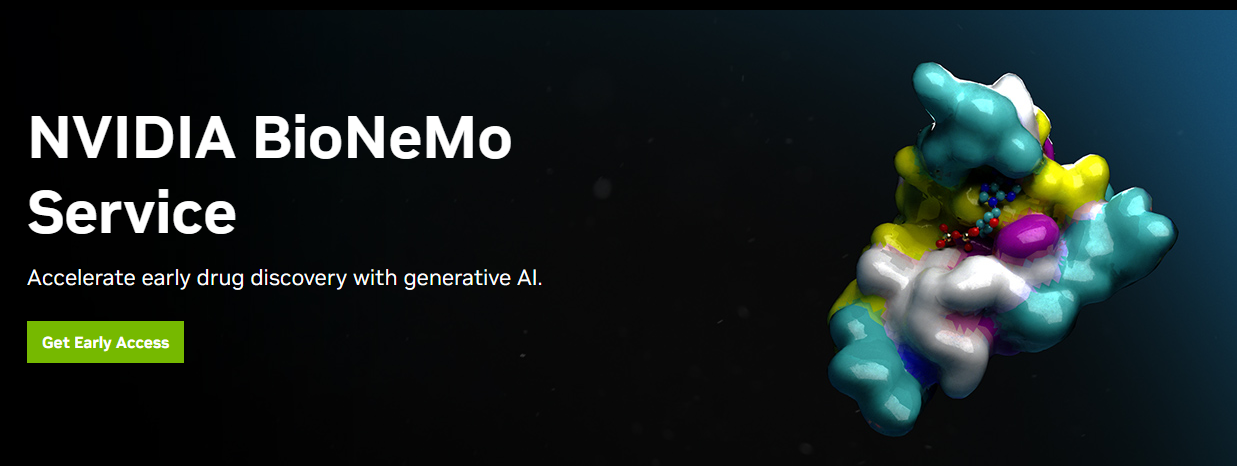
What You Should Know:
– NVIDIA today announced an expanded set of generative AI cloud services for customizing AI foundation models to accelerate the creation of new proteins and therapeutics, as well as research in the fields of genomics, chemistry, biology and molecular dynamics.
– Part of NVIDIA AI Foundations, the new BioNeMo™ Cloud service offering — for both AI model training and inference — accelerates the most time-consuming and costly stages of drug discovery. It enables researchers to fine-tune generative AI applications on their own proprietary data, and to run AI model inference directly in a web browser or through new cloud application programming interfaces (APIs) that easily integrate into existing applications.
New Generative AI Models Available With BioNeMo Service Early Access
BioNeMo now has six new optimized, open-source models, in addition to its previously announced MegaMolBART generative chemistry model, ESM1nv protein language model and OpenFold protein structure prediction model. They include:
– AlphaFold2: A deep learning model that reduces the time it takes to determine a protein’s structure from years to minutes or even seconds, just by using its amino acid sequence, developed by DeepMind and already used by over a million researchers.
– DiffDock: To help researchers understand how a drug molecule will bind with a target protein, this model predicts the 3D orientation and docking interaction of small molecules with high accuracy and computational efficiency.
– ESMFold: This protein structure prediction model, using Meta AI’s ESM2 protein language model, can estimate the 3D structure of a protein based on a single amino acid sequence, without requiring examples of several similar sequences.
– ESM2: This protein language model is used for inferring machine representations of proteins which are useful for downstream tasks such as protein structure prediction, property prediction and molecular docking.
– MoFlow: Used for molecular optimization and small molecule generation, this generative chemistry model creates molecules from scratch, coming up with diverse chemical structures for potential therapeutics.
– ProtGPT-2: This language model generates novel protein sequences to help researchers design proteins with unique structures, properties and functions.
